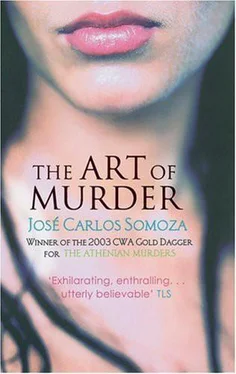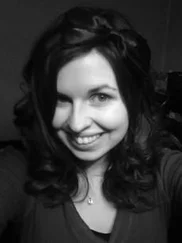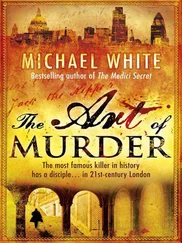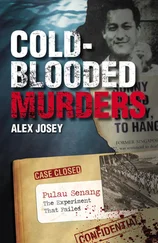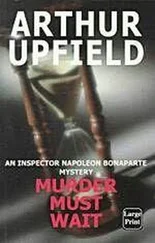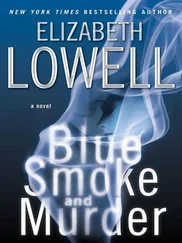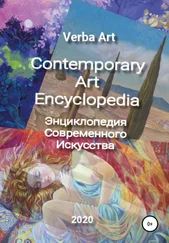Jose Somoza - Art of Murder
Здесь есть возможность читать онлайн «Jose Somoza - Art of Murder» весь текст электронной книги совершенно бесплатно (целиком полную версию без сокращений). В некоторых случаях можно слушать аудио, скачать через торрент в формате fb2 и присутствует краткое содержание. Жанр: Триллер, на английском языке. Описание произведения, (предисловие) а так же отзывы посетителей доступны на портале библиотеки ЛибКат.
- Название:Art of Murder
- Автор:
- Жанр:
- Год:неизвестен
- ISBN:нет данных
- Рейтинг книги:4 / 5. Голосов: 1
-
Избранное:Добавить в избранное
- Отзывы:
-
Ваша оценка:
- 80
- 1
- 2
- 3
- 4
- 5
Art of Murder: краткое содержание, описание и аннотация
Предлагаем к чтению аннотацию, описание, краткое содержание или предисловие (зависит от того, что написал сам автор книги «Art of Murder»). Если вы не нашли необходимую информацию о книге — напишите в комментариях, мы постараемся отыскать её.
Art of Murder — читать онлайн бесплатно полную книгу (весь текст) целиком
Ниже представлен текст книги, разбитый по страницам. Система сохранения места последней прочитанной страницы, позволяет с удобством читать онлайн бесплатно книгу «Art of Murder», без необходимости каждый раз заново искать на чём Вы остановились. Поставьте закладку, и сможете в любой момент перейти на страницу, на которой закончили чтение.
Интервал:
Закладка:
His brother was massacring another aria in the bathroom. As he listened, Hubertus thought what an abject, perverse, cowardly and vicious person Arnoldus was. He hated him profoundly, but could not live without him. He thought of him the way he did his own inner organs: as something intimate, unavoidable, repugnant. At primary school, it was Arno who was always getting into trouble, but both of them were punished. 'If one of you is to blame, the two of you will pay,' Miss Linz used to say, eyes shining. And that was how it had been all his life: with their father, the judges, the police. That fat, soft, sickly creature singing out of tune in the bathroom (although still without raising his voice) was the one who had led Hubertus astray. Wasn't it Arnoldus who had thought up the plan to amuse themselves with Helga Blanchard and her son?
A quell'amor… quell'amor die palpito…
He remembered it all only in fragments, as though wrapped in golden mists, almost like a fascinating sweet: the mother's eyes widening in terror, hmmm, the ear-splitting cries, the small agonising hands…
… Dell'universe… Dell'universo intern…
… flashes of fragile flesh, hmmm, mouths opening in perfect circles, a roundness drained of blood…
… Misterioso, misterioso altero…
At first it seemed as though they had messed up again. That amateur painter working with his easel near Helga Blanchard's house had seen them. But the defence lawyer with dandruff had been extraordinary. What had looked as though it could be the end of their lives had suddenly become a wonderful fresh start.
The serpent biting its own tail. The perfect circle. What a beautiful harmony the circle is, especially when it doesn't move, when it's dead or paralysed and a finger can slip easily all round it. And what a great man Bruno van Tysch was. Thanks to him they led the life they dreamed of, and beyond that a good chunk of immortality, too. How marvellous it was to be a work of art.
He turned round in the warm velvet. It was then he noticed that the Gigli work had moved.
… Croce e delizia… delizia al cooor…
Drops of water in his eyes blurred his vision. He rubbed them. Looked again.
Croce, croce e delizia, croce e dclizia… dclizia al cooor…
The painting, a flexible shadow in a black mask with the silhouette of a fencing master in mourning, was walking slowly over to the bar. It moved so naturally that at first Hubertus thought it must simply want a drink. But it can't! he realised all of a sudden. It's a work of art! It's not allowed to move!
'What are you doing?' he asked. He raised his voice so high the question ended in a squawk.
The Gianfranco Gigli work did not reply as it walked round behind the bar, bent down and got something out. A small case. Then it came back round the bar, sat behind Hubertus' back, and snapped open the metal clips on the case. They sounded like gunshots in the almost completely silent room (ah, aaahhh-ah-aaaaaaahhh came Arno's tremolo voice from the bathroom).
Hubertus thought about calling his brother, but hesitated. His curiosity kept him silent. He heaved his massive bulk to the edge of the pool. The Gigli was fiddling with something on the table. What could it be? Something it had taken out of the case. Now it was putting that to one side and picking up something else. It did everything in such a delicate, gentle, clean way that for a moment Hubertus approved. There was nothing he enjoyed more than the subtle delicacy of shapes: a ballet dancer; a young boy; an act of torture.
He concluded it must be an alteration Gigli had called for. Perhaps the artist had decided to make the work into a performance. At any rate, it must be something to do with art. Anything goes where art is concerned, nothing has its own intrinsic value.
Things are art just because, because artists say they are and the public agrees. Hubertus recalled a work by Donna Meltzer entitled Clock, which was attached to the wall and moved round by the hour, except that the artist had decided that it would lose ten minutes a day, and by the end of a fortnight would come to a complete stop. Paintings do not always have to do the same thing. Some evolve according to a pre-established plan their creator has devised. So this one? It had changed. It must have fresh instructions. What was the symbolism behind that? Our mechanised society (which would explain the strange appliances it was laying on the bar)? The symbol of authority (a pistol)? The mass media (a portable recorder and a miniature video camera)? Violence (a set of sharp instruments)? Maybe it was all of those. Whatever Gigli wanted. After all, he was the painter and the only one who…
Suddenly, he remembered that Gianfranco Gigli had been dead for over two years.
A heroin overdose – they had told him so in the hotel when they showed him the painting. deliziaaa aaaal cooooooooor… ah-ah-ah-ah-aanaaaaaahhhh…
Hubertus stood quite still, hands on the marble edge of the pool and his body covered to the waist by water. Trails of it trickled like ants down his head and upper body. He looked like a wax mountain starting to melt. Could a work of art alter itself after the death of its creator? If so, was the result a posthumous work or a fake? Strange questions.
Then all at once Hubertus stopped worrying about what the Gigli figure was doing (Who cares what it's up to?) and felt a brutal rush of happiness. The sensation shot through three trillion molecules of body fat and produced a whirlwind in his mind similar to a powerful orgasm. He was overjoyed at being part of such a complex world, an existence that only rarely (if ever) could be explained or described in words, the secret, unending golden well-spring, the select circle they all belonged to – the Gigli painting, Van Tysch, the Foundation, the twins themselves and a few other chosen ones (well OK, let's leave the sad Gigli figure out of it, because it has to renew itself to stay up-to-date), the marvellous life which allowed them to indulge their fantasies and to become the stuff of fantasies for others. Even the fact of being so enormously fat was an advantage in this world. To be as monstrous as a monster, Hubertus understood, could go beyond the limits of everyday reality and become a symbol, the res of art, an archetype, philosophy and meditation, theories and debates. Bless you, world. Bless you, world. Bless your power and possibilities. Bless all your secrets as well.
The Gigli painting appeared to have finally completed its preparations, whatever they were. It turned round calmly and headed off for another point, another destination inexorably chosen by a dead artist. Hubertus watched it expectantly. Where? Oh, to where are you directing your harmonic footsteps, divine, radiant creature? Hubertus Walden asked himself.
Overcome with planetary harmony, it took him a moment to realise that the work was heading for him.
When he was a child, Arnoldus was attacked by a tiger.
Infallible, precise, powerful, deadly. A black tiger with glinting eyes born of his dreams. It was his nightmare, his childhood terror. He would cry out and wake up Hubertus, and then inevitably the tiger would turn into his father's belt as it flew through the air and lashed his naked behind over and over again. CI didn't mean to cry out, papa, please believe me, I couldn't help it.') The only thing their father hated was when they shouted. 'Do whatever you like, just don't shout,' he always told them: it was his constant obsession.
Unlike his brother, Arnoldus did not believe he had been compensated for his past. He thought that life was a commerce owned by someone different every day, which never pays you back if you have overpaid. It was true they were immensely rich now. They were considered a work of art of incalculable value. Mr Robertson, who might well become their new papa, loved them: Arno knew that Mr Robertson would never think of thrashing him with his belt if he heard him cry out in the middle of the night, while the bitter saliva of his worst nightmare slid down his chin. Now they were adored, respected and admired as great works of art. But could this new life give them the happy childhood they had not had? Was the worldwide reknown they now enjoyed retroactive? Could it transform their bad memories into good ones? No, it did not even change ways of behaviour. As an adult, Arnoldus still did not raise his voice. The tiger was dead, and so was his father, but life never gives anything back.
Читать дальшеИнтервал:
Закладка:
Похожие книги на «Art of Murder»
Представляем Вашему вниманию похожие книги на «Art of Murder» списком для выбора. Мы отобрали схожую по названию и смыслу литературу в надежде предоставить читателям больше вариантов отыскать новые, интересные, ещё непрочитанные произведения.
Обсуждение, отзывы о книге «Art of Murder» и просто собственные мнения читателей. Оставьте ваши комментарии, напишите, что Вы думаете о произведении, его смысле или главных героях. Укажите что конкретно понравилось, а что нет, и почему Вы так считаете.
